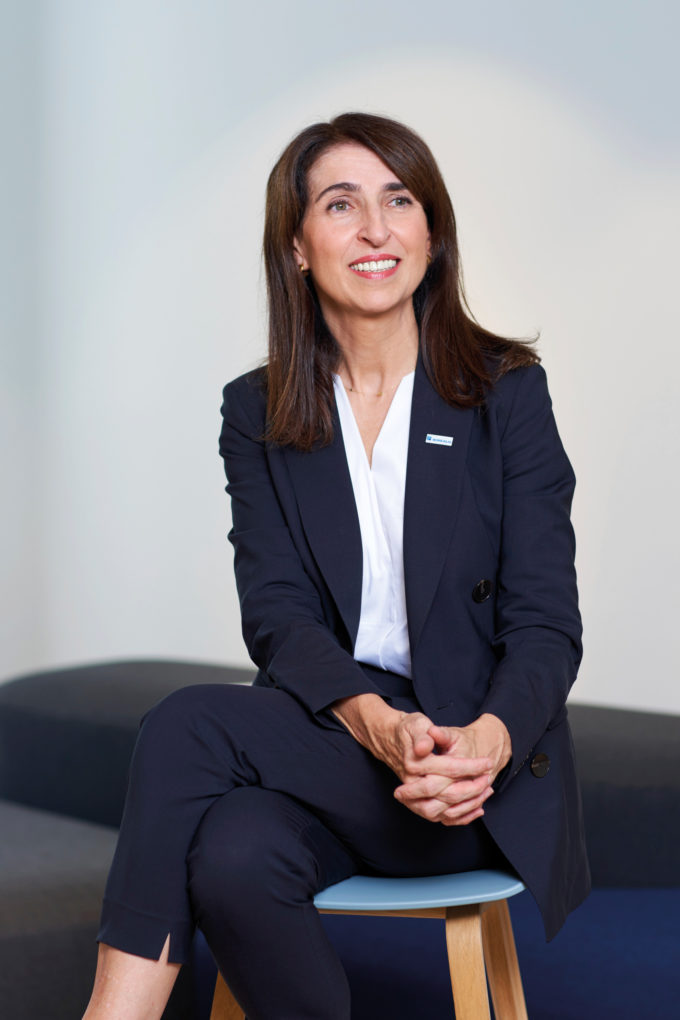Foufopoulos said this taught her the benefits of taking risks and exploring new opportunities. “I would advise any young engineer to be brave and not shy away from embracing new opportunities and taking a calculated risk. There are enormous rewards for learning and expanding out of your comfort zone.”
She quoted Nelson Mandela, “I never lose. I either win or learn.” There is only an upside, as even if you fail you benefit from a valuable learning experience. This philosophy helped her get through two particular periods of uncertainty in her career. The first was when she moved from Dow Corning to Rohm and Haas in the middle of 2008, only to find that it was set to be taken is over by Dow. “People didn’t know whether they would survive the integration. There were rumors going around of layoffs of up to 25% of the workforce, and there I was, totally new in a new company being prepared for take-over. But I was quite determined to prove that I was there for a reason, and I remained focused on the job and the enormous learning opportunity I was presented. Today I look back with some pride and gratitude for the precious learnings I retained from this highly uncertain period during the economic crisis of 2008-2009.”
The second was when she joined Eastman Chemical in 2014, and wrongly assumed after having spent 18 years in the broader Dow Chemical group (including h-Dow Corning and h-Rohm and Haas) that the culture of Eastman Chemical would be similar to that of her previous employers. This was also her first experience in a functional leader role, as corporate head of sales and marketing, while not being based at the company’s corporate headquarters in Kingsport, Tennessee.
“I learned quickly about the importance of cultural sensitivity and in-depth understanding of a company’s formal and informal decision-making processes. I figured out that if I wanted to have impact, I’d better get on the plane and be where the decisions were being made.” This turned out to become another invaluable experience, which equipped her better to join for the first time a European company, the Borealis group, with an equally individual culture. Over the years, she has also benefited from having great mentors, role-models and talented colleagues and leaders.
“I am grateful for the invaluable learnings I drew from working with so many great and generous leaders and colleagues in prime multinationals. They helped me fill my rucksack, they allowed me to learn from their successes and failures, they accompanied and guided me through my own successes and failures, and they cared enough to give me feedback!”
She is also keen to encourage those starting out on a leadership career now to follow her example of seizing new opportunities and not just taking the obvious path. “I would encourage any young professional to invest in seeking out many experiences in the right places and not wait until opportunities are presented to you. Take chances, while doing proper due diligence, and follow your instincts, follow your passion and pursue your dreams. Be brave and dare to dream big,” she said.
No one is born with the expectation that they will eventually become an executive or CEO, but she said there were a number of qualities that could help people to succeed. “For me to suggest there is a manual would be foolish. Life unfolds in different ways, but you can give destiny a hand. There is no manual. There are however a few ingredients in the recipe that definitely pay off: courage, risk-taking, hard work, being curious and inquisitive, and constantly looking for opportunities to learn and adopt new ways of doing things. Those are the pieces of advice that I would give and which have so far worked quite well for me.”







